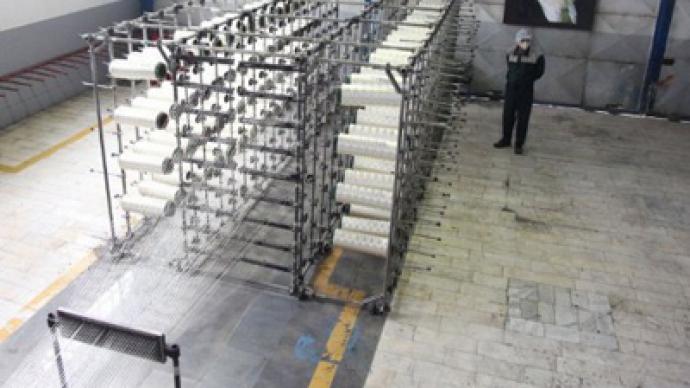The EU will immediately ban new oil deals with Iran and implement a total boycott of Iranian oil in July 2012, under sanctions discussed by the 27 Foreign Ministers today.
Sanctions could also target the activities of a number of Iranian companies, individuals and financial institutions, including the country's central bank.Iran has already responded to EU sanctions by renewing its threat to block the Strait of Hormuz. A senior Iranian official said Iran would "definitely" close the vital oil transit route.British Foreign Secretary William Hague said the measure was part of an unprecedented set of sanctions. “I think this shows the resolve of the European Union on this issue.”Western leaders insist Iran is on a dangerous path towards acquiring nuclear weapons and demand it halts its program. Tehran consistently denies such ambitions, saying its nuclear intentions are civilian, not military.It’s thought France sought immediate sanctions against Iran while others, including debt-laden Greece, reportedly asked for a 12-month stay. Italy, Spain and Greece account for up to 68 per cent of Iranian oil consumed in Europe. The EU embargo follows tough US sanctions approved earlier this month. Taken together, they remove 2.6 million barrels of oil from international markets, driving oil prices up and adding to global economic instability.
Doubts remain on whether the sanctions will have the desired effect. China remains the biggest buyer of Iranian oil, and so far, it has not agreed to any sanctions, and could possibly take up the quota now banned by the west.Russia’s Foreign Minister Sergey Lavrov said that despite unilateral measures imposed on Iran, Moscow still has a strong hope that negotiations on Iran’s nuclear issue will soon resume and progress to a satisfactory conclusion.
Alternative ways
Iran has asked India to pay for its oil exports in Japanese Yen as the two countries seek ways to maintain their oil trade. Earlier India suggested rupees as the trade currency, but Tehran rejected that offer as the rupee is not fully convertible.Iran and India currently execute their oil trade through a Turkish intermediary bank using dollars and euros. However Iran is seeking independence from eurozone and US currencies due to recently-imposed economic sanctions.James Corbett, editor of independent news website “The Corbett Report,” thinks the oil embargo may even play to the country’s benefit. “The further Iran is pushed into a corner, the more their position will straighten over time as they develop alternative routes out for their oil exports,” he said.“As we have seen in recent days they [Iran] have been scrambling to establish exchanges in other currencies including their local currencies, even asking India to trade in Japanese Yen,” Corbett pointed out, “So we could see really a fundamental shift in the entire dynamic of this energy export economy.”The journalist also thinks that the EU embargo on Iranian oil is likely to affect Europe as much as it affects Iran, if not more.“In the current energy climate, it will be easier for Iran to replace its European exports with exports to other countries than it will be for Europe to find imports from other sources,” Corbett explained. “One third of the Iranian exports of crude oil actually go to Europe at this point, and a full 80 per cent of that export demand in Europe is taken up by four countries – Turkey, Italy, Greece and Spain… three of which are already teetering on the edge of economic collapse.”

